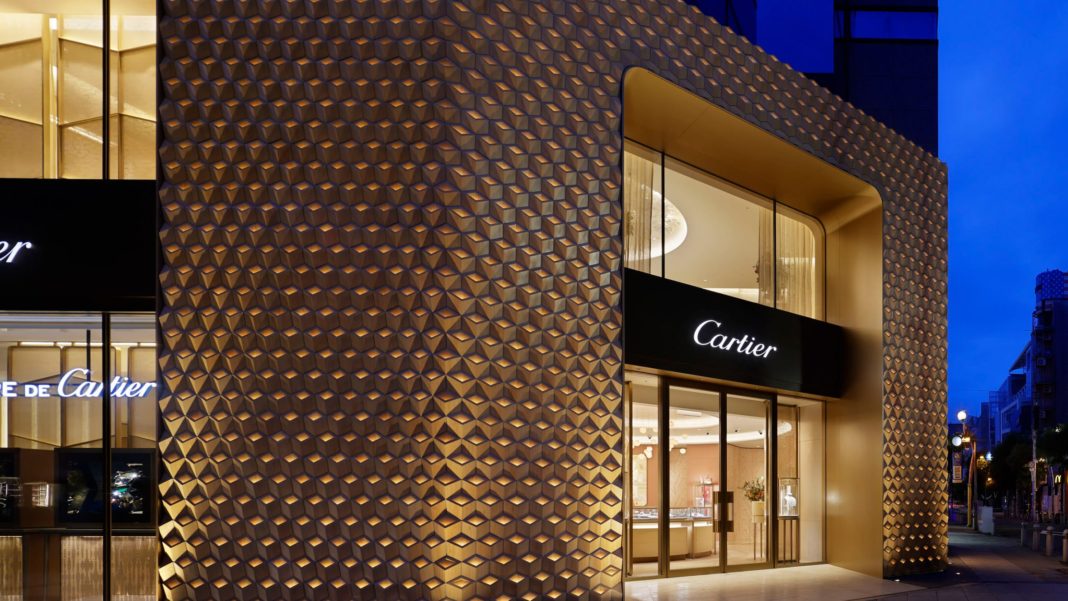Klein Dytham Architecture has created an ornamental wooden facade that includes a sample of interlocking three-dimensional blocks that can be individually illuminated at night time for a Cartier retailer in Osaka, Japan.
The shop is located on a nook of Shinsaibashi – town’s essential purchasing district – and shares an intersection with Apple, Nike, and Burberry.
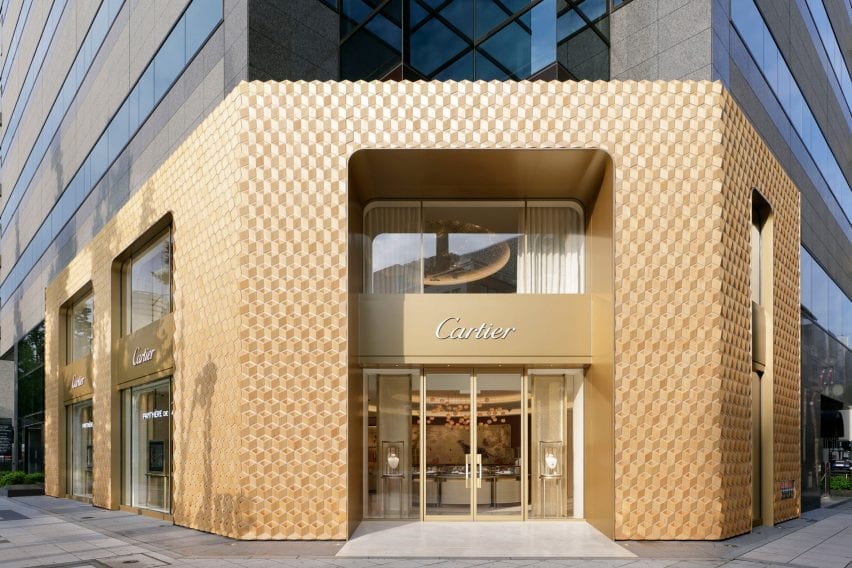
Klein Dytham Architecture (KDa), which is predicated in Tokyo, designed the facade to distinction with the metallic and glass exteriors of the encompassing buildings.
The wood facade wraps across the angled nook of the present constructing, introducing a heat and textured aspect to the streetscape.
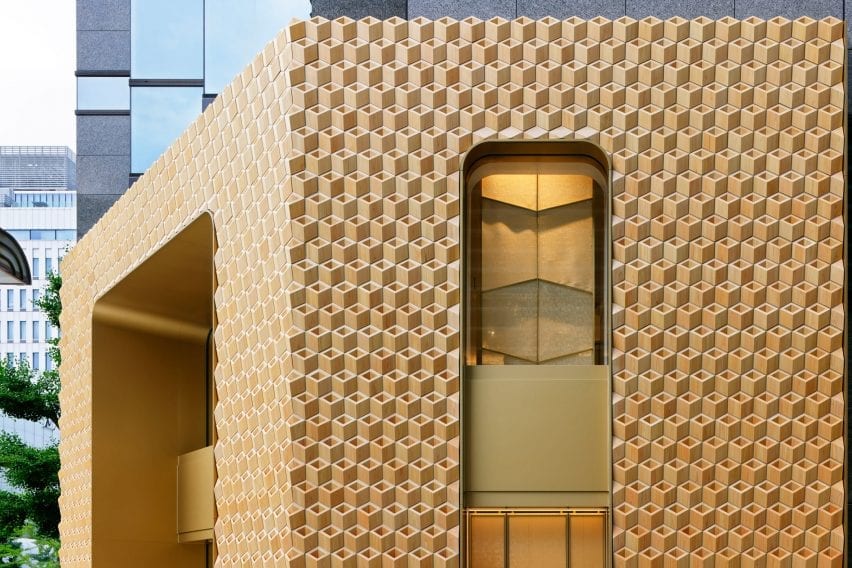
An entrance and home windows on two sides had been positioned inside double-height arches that permit views of each of the shop’s flooring.
The facade is comprised of hinoki – a species of cypress native to central Japan. The wooden is related to the development of historic temples, shrines and castles and was chosen for this venture due to its heat tones.
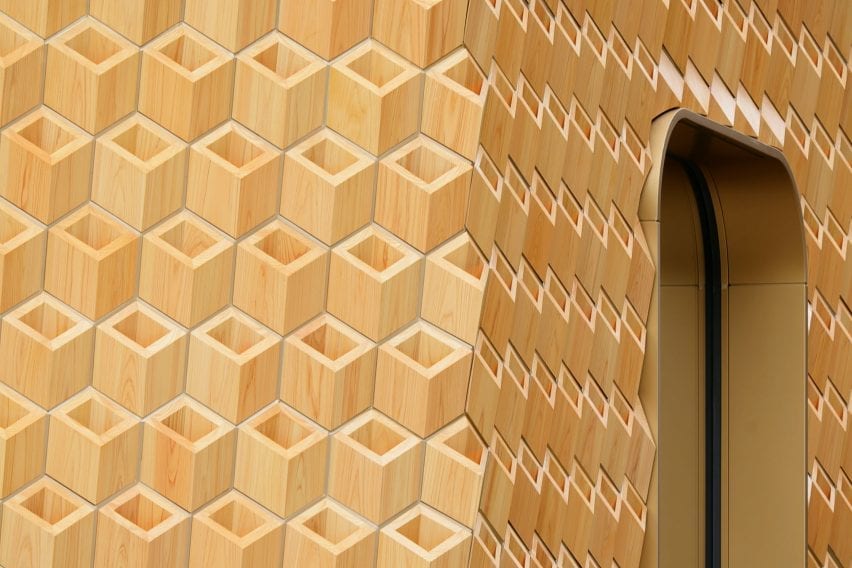
The brand new facade is squeezed right into a 200-millimetre zone between the present constructing and the boundary line. A framework comprised of recycled aluminium was erected to connect the hinoki panels to the construction.
The usage of recycled metallic and domestically sourced timber is meant to emphasize the venture’s sustainable credentials.
“To create an environmentally acutely aware construction that displays Cartier’s involvement in accountable jewelry, KDa appeared to renewable and recycled sources, in addition to native artisanship,” mentioned the studio.Related storyJun Aoki & Associates wraps Louis Vuitton’s Tokyo store in “poetic yet playful” pearlescent facade
Craftsmanship was one other key focus for the venture, which goals to reference the jewelry model’s artisanal method in addition to evoking Japan’s historical past of conventional crafts.
“The geometric sample of gently protruding interlocking diamonds takes inspiration from each basic Cartier jewelry and conventional Japanese hinoki masu (sake packing containers),” claimed KDa.
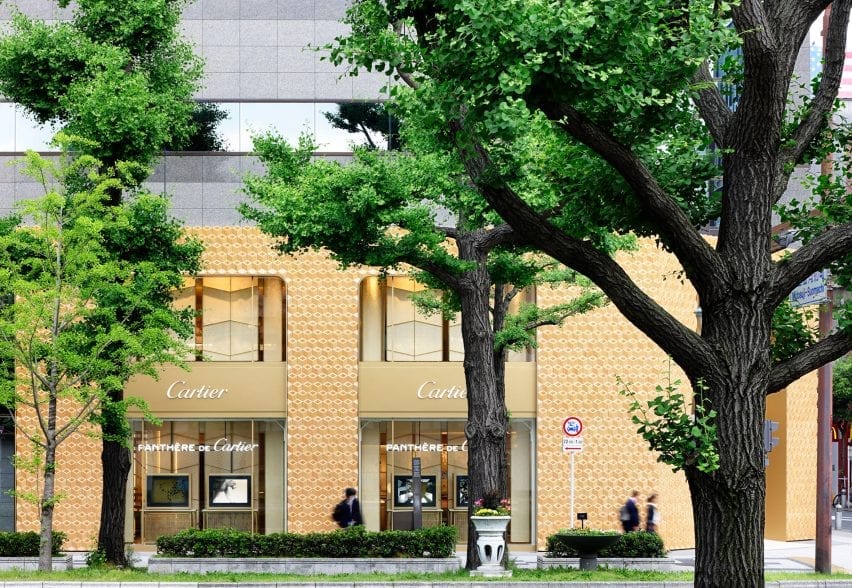
The facade, skirting and arched window particulars comprise greater than 2,500 models handcrafted by Kyoto grasp carpenters utilizing conventional joinery strategies.
Seasoned hinoki wooden from 60 to 70-year-old timber was used to provide barely protruding diamonds in 12 totally different shapes. The wooden, which is of course secure and climate resistant, was handled with a transparent lacquer to offer enhanced UV resistance.
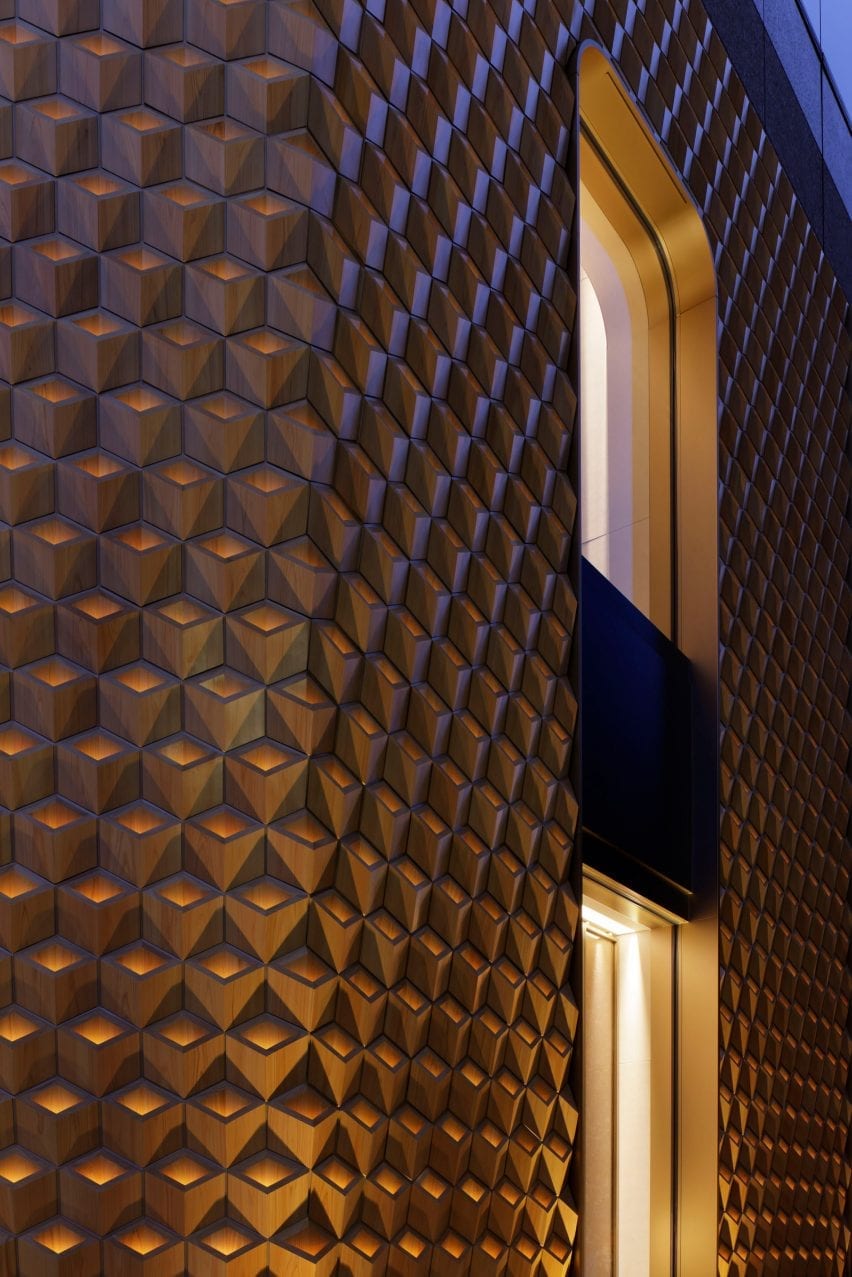
Particular person LED lights positioned behind every unit illuminate the construction at night time, producing a sample of sunshine and shadow that turns into extra distinct as nightfall gathers.
“Subtle by the box-like diamond of every part, the impact not solely will increase the three-dimensionality of the facade, however provides it an inviting heat glow,” the studio added.
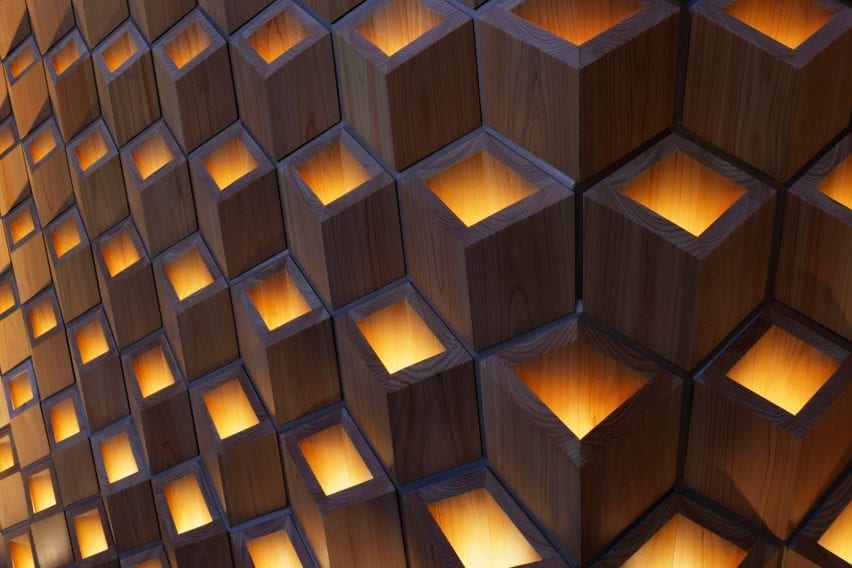
Klein Dytham Structure was established by Royal School of Artwork graduates Astrid Klein and Mark Dytham in 1991. The multidisciplinary studio’s earlier tasks embrace a commercial building with a latticed facade that overlooks a busy intersection in Tokyo, and a clubhouse for a Japanese hotel that includes conical roofs that poke up above a forest cover.
Pictures is courtesy of Cartier.



